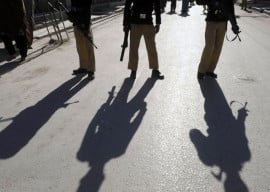
Although he was the son of the best known Mughal couple known for their love story, Shah Jahan and Mumtaz Mahal, and the brother of one of the most renowned emporers, Aurangzeb, very little is known about the scholarly pursuits of Dara Shikoh.
However, recent research revealed that Shikoh studied theology and Hindu scriptures in great detail. This emerged in a lecture by Dr Munis Faruqui, the assistant professor at the department of south and south-east Asian studies at the University of California Berkley, hosted by the Habib Univeristy Foundation.
The lecture was titled “New Perspectives on the Mughals: The Case of Dara Shikoh.” Faruqi shed light on the political and theological implications of Dara Shikoh’s scholarly work on the Upanishads – a sacred Hindu scripture which expounds the Vedas in predominantly mystical and monistic terms. He supervised the translation of Upanishads from Sanskrit into Persian, for which he was later executed. He was assassinated in front of his son by four henchmen of the emperor on the night of August 30 in 1659.
Dr Faruqui said that the lives of Dara Shikoh and Aurangzeb, the eldest and the third sons of Shah Jahan have been shrouded in mystery. Shikoh was supposed to be heir of the Mughal Empire but the crown was usurped by Aurangzeb.
Faruqui explored the journey of Dara Shikoh to proclaim the importance of the Upanishads to the Muslims and the rest of the world. He asserted that he believed that the work referred to in the Quran as “Kitab al-Maknun” (The hidden book) is none other than the Upanishads – humanity’s first monotheistic text.
Published in The Express Tribune, January 5th, 2012.
COMMENTS (1)
Comments are moderated and generally will be posted if they are on-topic and not abusive.
For more information, please see our Comments FAQ

















Killing of Dara Shikoh was the turning point for Mughal empire. Aurangzeb made sure the down fall of the empire build by Akbar.